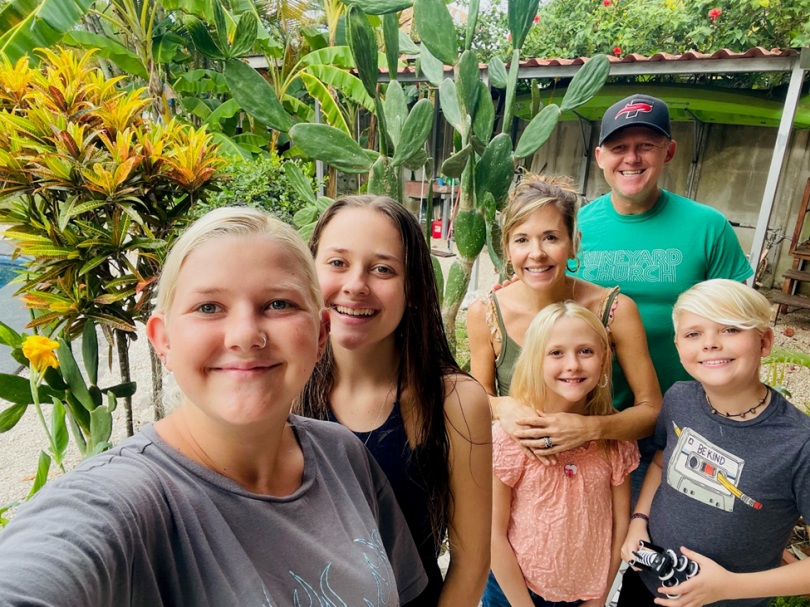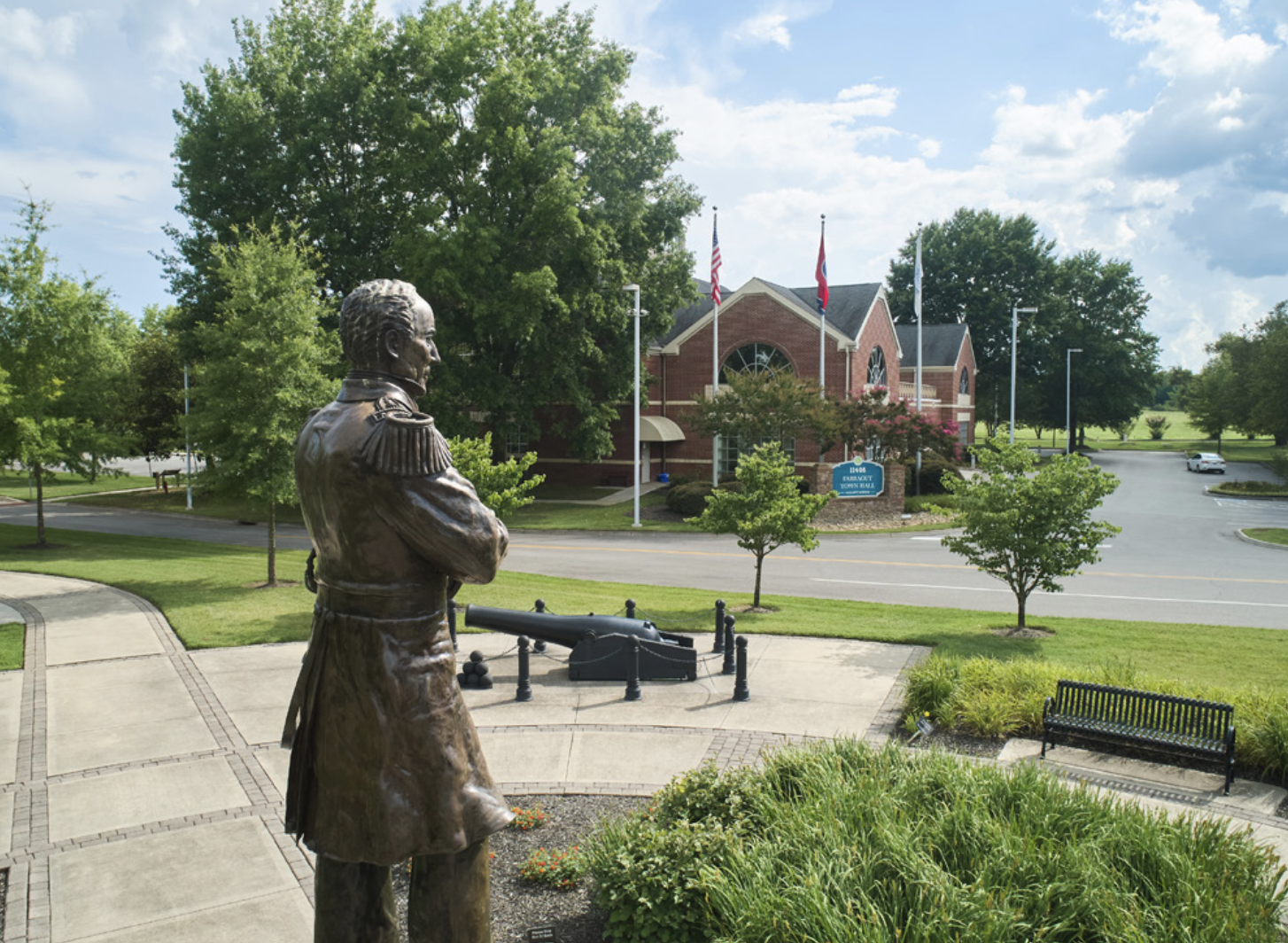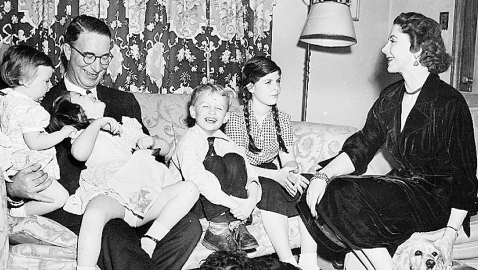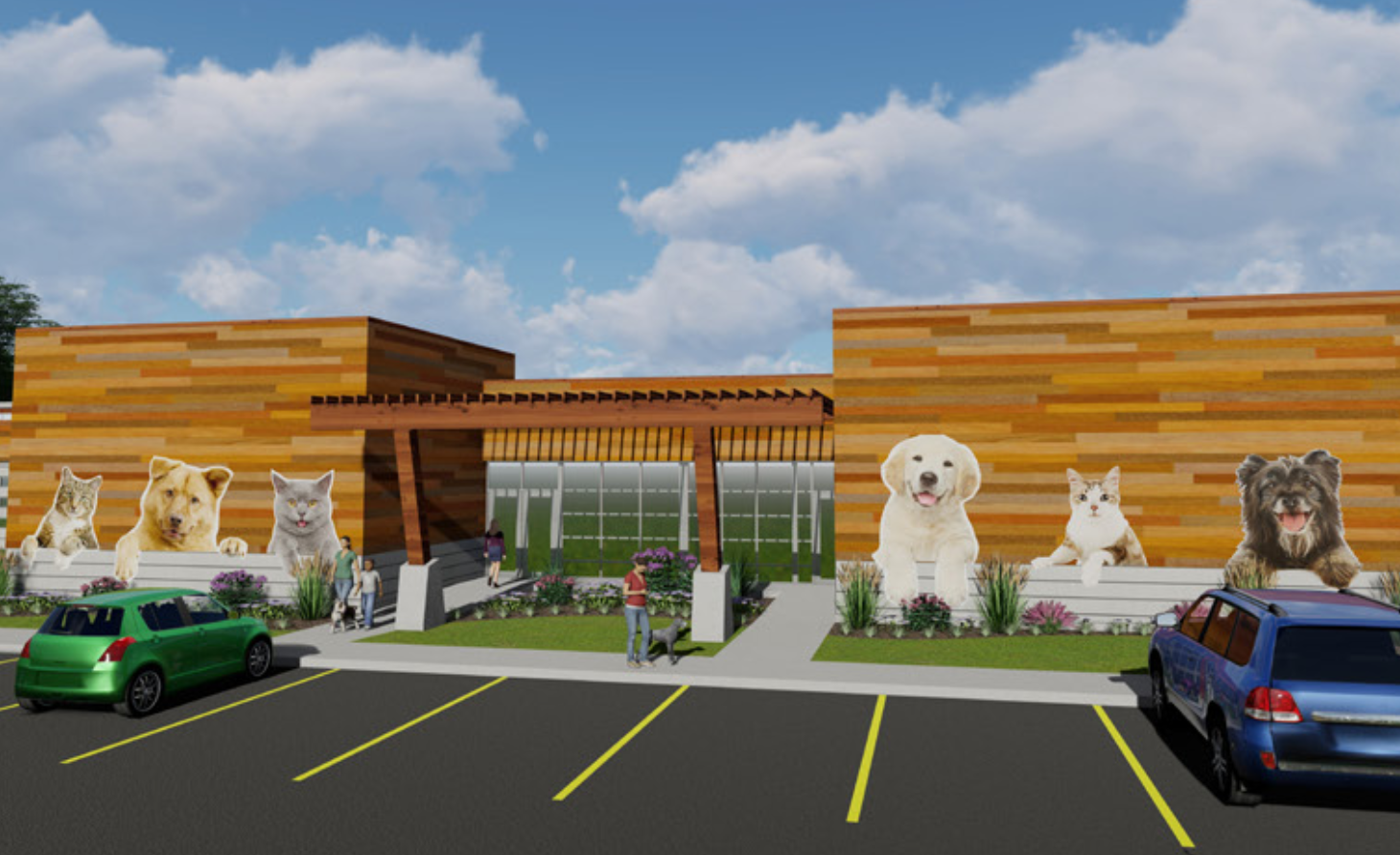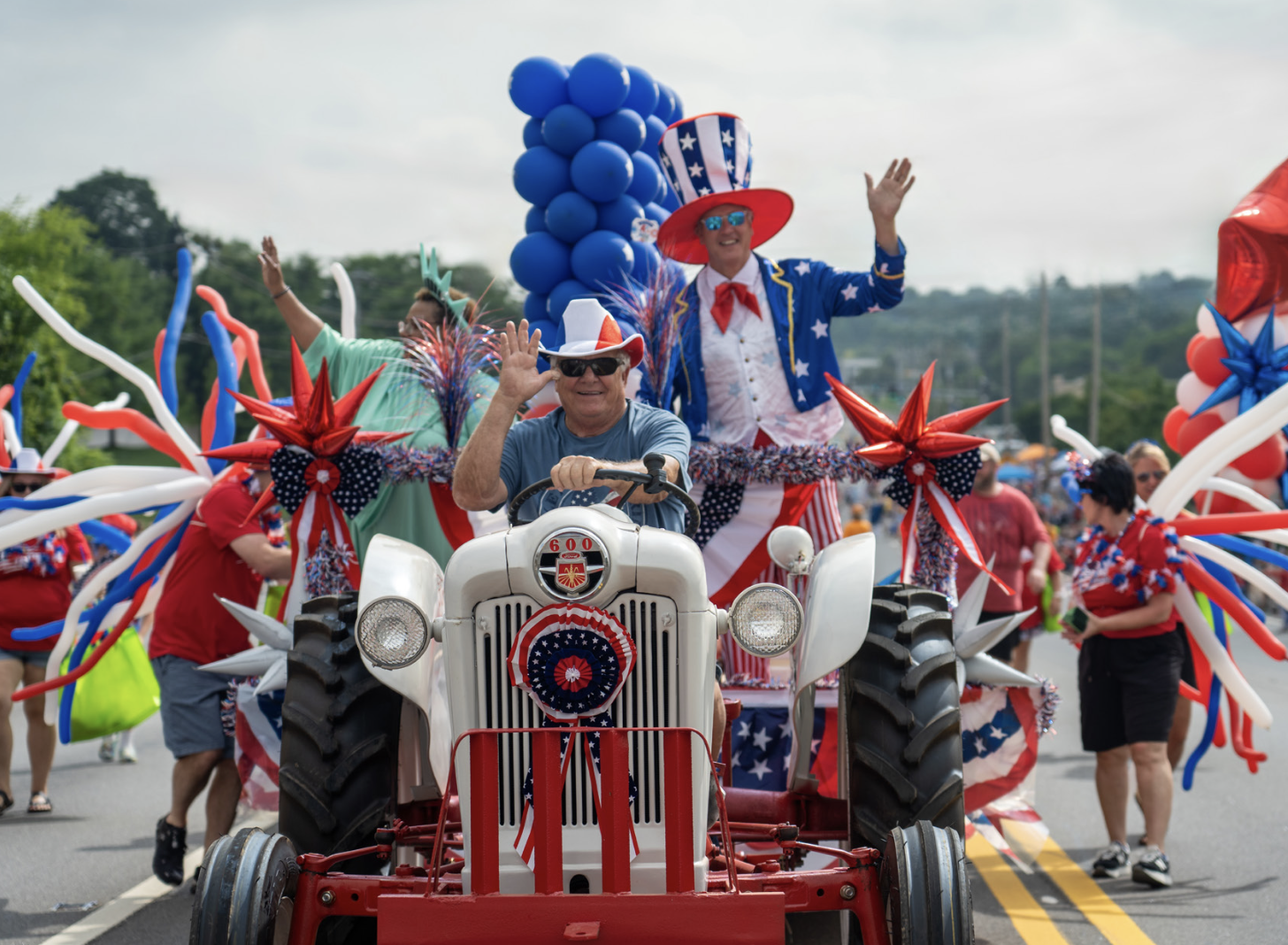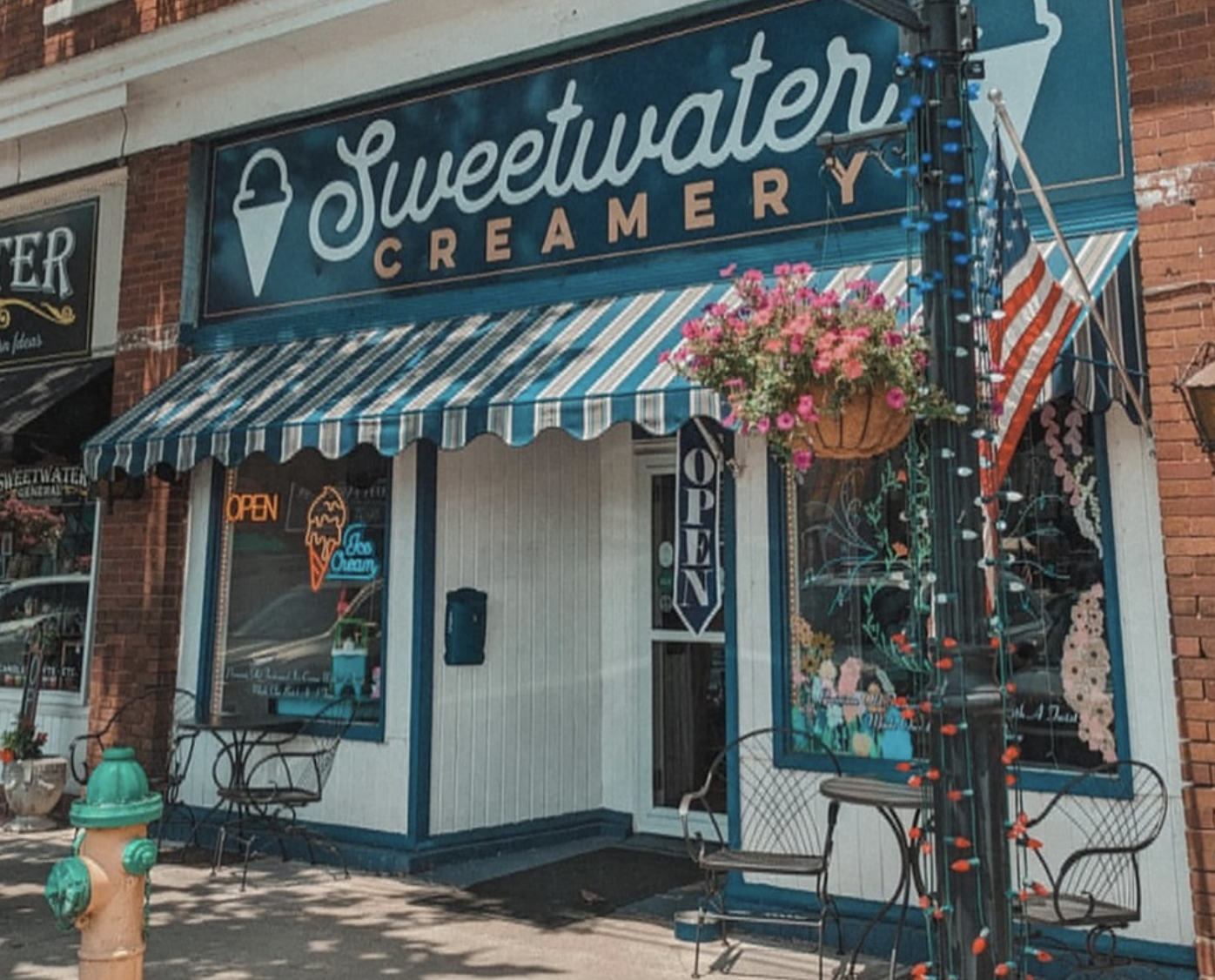Adam and Kelly Vaughan never expected to be missionaries. Parents to four children— Emmiline who was 13 at the time, Eloise age 10, Elliott age 7, and Charli age 5—the Vaughan’s were a cautious family, slow to take risks and never without a plan, the kind of people who made detailed budgets for their paychecks, who expected to work at the same job for their whole lives.
Given their careful, practical attitudes, the Vaughan’s were the last people you’d expect to sell everything and move to a third-world country for seven years with little money and no plan. Yet this is exactly what they did.
Today, the family lives in Farragut, having recently returned from Costa Rica. When I asked for an interview, they kindly invited me to their house. Sitting opposite me in their living room, Adam and Kelly told me their story.
***
While Adam and Kelly had never expected to be long-term missionaries, Adam had led several week-long mission trips to Mexico, Honduras, and Spain.
He recalled, “I was in Honduras serving, and I felt like the Lord lovingly, tenderly invited me to sell it all and move to central America.” He wasn’t sure if this was really from God, though, so he talked to his wife and their older daughters about the thought.
Kelly was stunned.
“I’ve been married to this man for a long time,” she said. “He takes zero risks. Ever. We hadn’t talked about going… to Costa Rica. We’d never even talked about the subject of even visiting ever in our lifetime.” They were a young family trying to live off of a ministry salary with little to spare.
Kelly knew this thought couldn’t have come from Adam. It was something so outside of his makeup that he wouldn’t have even dreamed it. It had to be from the Lord.
Their kids were excited about the idea, and in June of 2015, after much consideration, the family finally decided to do it. And for a cautious, risk-averse group, this was a crazy risk.
“We call ourselves the backwards missionaries because we did everything backwards,” Adam said, “We didn’t go with a missions agency because we wanted to be able to serve cross-denominationally… We didn’t know the language… We’d never been there. We didn’t know the people. We didn’t know what we were supposed to do. We didn’t have the money raised.”
Adam went on an exploratory trip to Costa Rica with a friend, and they toured some houses where the family could live. Everyone had told them not to buy a house until they had lived in Costa Rica for a year and knew the area, but the Vaughan’s didn’t have that option. They sold or gave away most of their possessions and moved to a third-world country, throwing all their money into a house Adam had walked through for about two minutes.
Kelly said, “We’d both served in missions plenty of times with the marginalized, but it’s different going for ten days [versus] making a life there for seven years.”
The six-person family now lived in a two-bedroom house with a tin roof that made the place sound like the inside of a drum under the pounding of rain that fell almost nonstop for six months of the year. Like the rest of the town, the Vaughan’s house lacked central cooling—in a country a thousand miles south of Texas. The power and water went out constantly, and the family dealt with all sorts of illnesses to which they had no natural immunity. It made them appreciate all they normally took for granted.
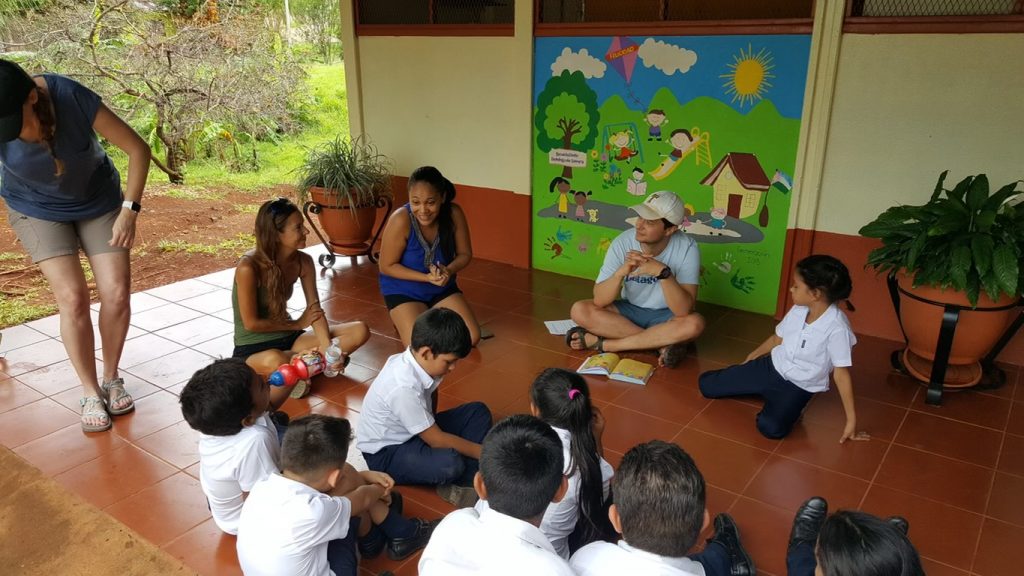
Kelly said, “I think sometimes it also reveals you’re not as strong as you think you are when you’re removed from everything familiar and you’re set out in the middle of the tropics with all the elements and a whole other culture. You’re basically a foreigner.” The experience gave them greater empathy for foreigners in all countries.
How did the kids feel about their new home? Not how you might expect.
“The kids were amazing,” Adam said. There were four of them sharing one small bedroom and attending a one-room schoolhouse where animals would walk through the rural and rustic playground—yet the kids never complained.

“I think that’s why we were able to sustain it as long as we were,” Kelly said. “I honestly can’t remember a time that my kids complanied which is pretty miraculous… In some ways, it was the most beautiful experience because where we feel entitled here [in America], they didn’t even know to feel entitled. It was a very simple life for them.”
And the children were just as involved in mission work as their parents, helping to lead worship, praying and encouraging people on home visits. They were missionaries just as much as Adam and Kelly.
“The labor wage is so low [in Costa Rica],” Adam said. “I have friends who will work all day [at] manual labor—and they’re skilled laborers—and they make under [the equivalent of] $3 an hour.” Because of this, theft was more common. “People are just trying to survive,” Adam explained.
They attended a language school at the beginning. It was difficult for both of them but especially for Kelly. She said that she worked harder at learning the language than anything else she’d worked on in her life. Nevertheless, as new speakers, they both had many embarrassing moments during their first few years.
Kelly explained, “Learning a language is more than just learning a language—it’s learning how people think, how people feel, how people express themselves. It’s getting to know someone… It’s more than just words.” It was because she valued her new community so much that Kelly worked tirelessly to be able to communicate deeply with them. It was a beautifully humbling experience.
Over the years the family made a lot of dear friends, from the young boy, their neighbor, who would come over to play with their kids nearly every day despite them barely being able to communicate with each other at first, to Pastor Pedro, a 70-year-old man who lived in a dirt-floored home deep in the mountains who owned little yet brimmed over with joy.

People picture missionaries spearheading massive thousand-person revivals, but the reality is smaller scale and less glamorous. The family served almost daily in schools, provided counseling for people struggling with depression or marriage issues, did emergency relief and construction work, offered encouragement and friendship to local pastors, and delivered groceries during the Covid pandemic, among many other things.
Adam said, “There were times where we were mostly helping single moms and widows, whether that was hauling away their trash, or digging a ditch to divert the rain, or Kelly brushing out a lady’s hair because she has a broken arm and was embarrassed of her hair… Most of what we did was in the context of relationships.”
He continued, “I like to make a plan, but we didn’t always know what the day would entail because it was very common for someone to show up at our gate and they would have either walked six miles asking for a bag of beans and rice, or they needed me to drive them to the hospital which was an hour away, or they needed to talk with Kelly about the sadness and struggles in their heart.” While they made plans, they had to be open to those plans being disrupted so that they could stop to show love to the particular person who was in need that day.
Kelly said, “Here’s the reality: people look at missionaries and… expect a certain outcome. They expect it to look a certain way, and… it didn’t look anything like what we thought it would look like.”
She explained that some people might look at their trip as a failure because there was no giant revival with millions of people coming to know Christ. But sometimes God is just calling you to do the little things, to be a friend to one person, to offer hope to one life, to be committed to the one man everyone else has abandoned—to be a funnel through which God can pour his love into other people’s lives.
“It would be nice to tell you we were able to start a 20,000-person school. But we weren’t,” Kelly said. “What we were able to do was offer hope to a lot of schools and a lot of kids who didn’t have parents, didn’t have food, didn’t have money… I think that was the main mission God had for us—simply being available every day.” Mission work like this is something we can all do right here in our local area.
“If we are believers, we should all be missional,” Kelly said. “You don’t have to go to Costa Rica to be a missionary… I’m supposed to be a missionary to my neighbor, to my child, to my husband.”
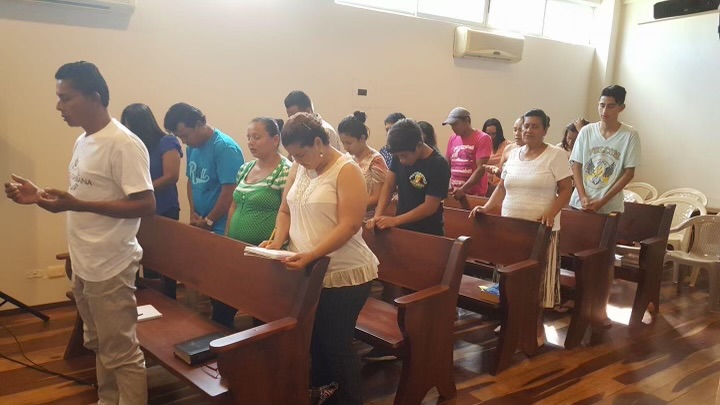
Adam and Kelly emphasized how wonderfully humbling their experience was. They had to be willing to struggle with the language, to embarrass themselves, to enter a culture that didn’t care about the achievements or education that Americans so value.
Kelly said, “I think our whole message was that—I am willing to be small so that you know that you are loved.”
She also said, “We never went into it thinking it was going to be glamourous, but we definitely went into it thinking this is what it’s probably going to look like, this is what we have to offer, this is what we can bring to the table, and God just responded, ‘Nah, I don’t want any of that. Thanks anyways.’ This left us with nothing to offer, but God said, ‘That’s perfect, because then I can just be me through you. When you feel emptied, then I can fill you with exactly what I want to release into the Costa Rican culture.’”
Their words reminded me of what John the Baptist said when his disciples told him that Jesus was baptizing more people than they were. John responded—not with sorrow, but with joy—“He must become greater; I must become less.”
What could be more beautiful than that?



